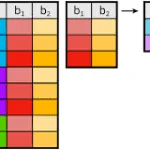You can use the SQL Year function to return just the year portion of a date. The value returned is an integer.
The YEAR function works the same as the DATEPART (year, date) and returns the year part of the specified date.
SQL YEAR Usage Notes
The only argument for the YEAR function is the date. It can be a database column value, string expression, or a user-defined variable. The data type can be time, date, datetime, smalldatetime, datetime2, or datetimeoffset.
If the date value does not contain a year part, then the value of 1900, the base year value, returns.
The return data type is an integer value.
Syntax
YEAR (date)
SQL YEAR Function Examples
In this example you can see how YEAR returns 2021 from the full date.
The following query returns years from which products in the AdentureWorks2019 database were available for selling.
Here we use YEAR to assist in grouping the data into annual buckets.
The inner join combines Special Offer and Special Offer Product tables by Special Offer id. The where clause checks for the NULL sale start date. Group by clause combines all the sale products in a year. Order by clause displays the result rows in ascending order of the year.
See Also




